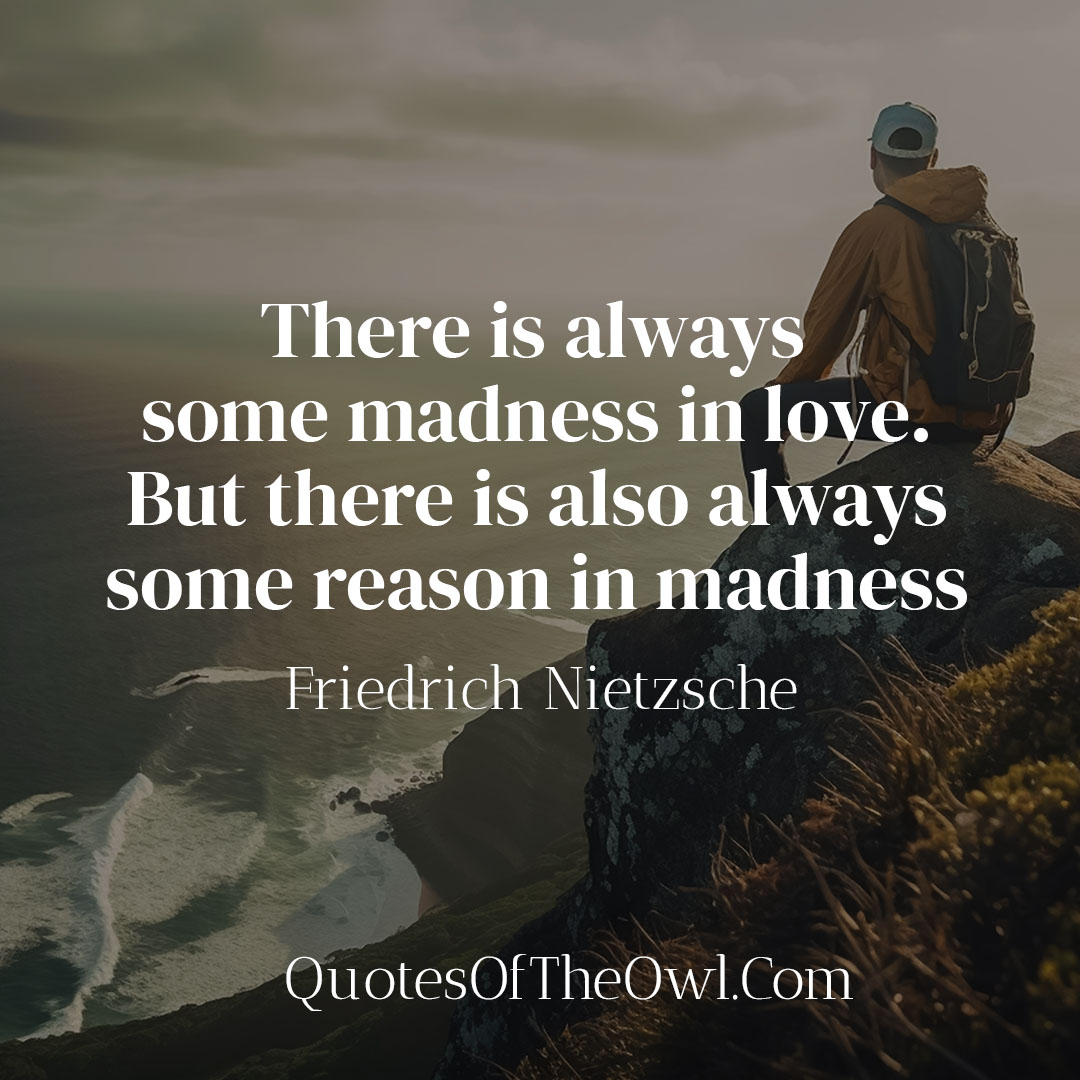Discovering the Hidden Meaning of Friedrich Nietzsche’s Famous Quote: “There is always some madness in love. But there is also always some reason in madness.”
Friedrich Nietzsche, a renowned philosopher, has left behind a legacy of profound ideas that continue to inspire people today. One of his most famous quotes is “There is always some madness in love. But there is also always some reason in madness.” In this article, we will delve deep into the hidden meaning behind this thought-provoking quote and explore what Nietzsche meant when he said it.
Love and Madness
Love is often associated with irrationality and passion, and Nietzsche suggests that there is a certain degree of madness in love. However, this madness does not necessarily mean something negative. It can refer to the willingness to take risks and the ability to let go of control. Love is not rational, and it is often associated with intense emotions and actions that defy logic.
Reason in Madness
At the same time, Nietzsche also suggests that there is a reason in madness. This can be interpreted in a few different ways. Firstly, it could refer to the fact that even in moments of irrationality, there is always a reason or motivation behind our actions. Love may seem irrational, but it is often driven by a desire for connection, companionship, or pleasure.
Secondly, reason in madness could refer to the fact that sometimes, it takes a bit of madness or irrationality to break free from the constraints of society and tradition. Love can be seen as an act of rebellion against the norms and expectations of society, and sometimes, it is necessary to break away from reason and rationality to achieve this.
Madness and Freedom
Nietzsche’s quote also suggests that madness and freedom are closely intertwined. Love can be seen as a form of freedom, where we allow ourselves to be vulnerable and open to another person. In doing so, we embrace the madness of love and allow ourselves to be swept away by its intensity.
The Role of Reason
Despite the emphasis on madness, Nietzsche also acknowledges the importance of reason in our lives. Reason is what allows us to make sense of the world and understand our place in it. However, he suggests that reason alone is not enough to truly understand the complexities of human nature.
Love, with its irrationality and intensity, challenges our notions of reason and logic. It forces us to confront our emotions and desires, even if they may seem illogical or irrational. In doing so, it provides a deeper understanding of ourselves and the world around us.
Conclusion
Friedrich Nietzsche’s quote “There is always some madness in love. But there is also always some reason in madness” has a deep and multifaceted meaning. It challenges our notions of reason and rationality and celebrates the irrationality and intensity of love. At the same time, it acknowledges the importance of reason in our lives and suggests that the two are not mutually exclusive.

